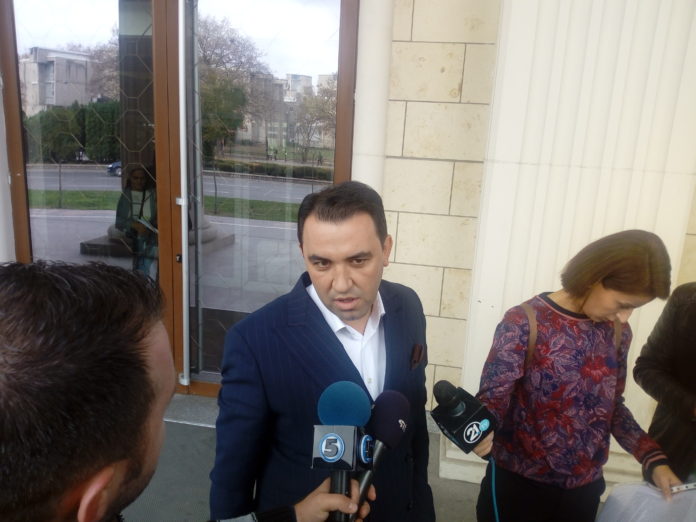Journalists and commentators supportive of the Zaev regime and its policies went had a hissy fit after Merxhan Dauti, an ethnic Albanian lawyer representing a co-defendant of former Prime Minister Nikola Gruevski in one of the many cases initiated by the Special Prosecutor’s Office, demanded that the case is translated into his native Albanian.
“Gruevski hired an Albanian lawyer”, blared the headlines in the pro-Government press, adding that the lawyer is protracting the trial using a legal clause – to make the judiciary fully bilingual – which Gruevski strongly opposed.
Put aside the fact that the media accusing Gruevski of this action supported introducing bilingualism into Macedonia, while Gruevski and others on the right correctly pointed out that such laws will make the judiciary even more complicated, inefficient and messy. The pro-Zaev press managed to get the facts wrong. Dauti is not representing Gruevski, but one of the co-defendants, Elisaveta Najdovska, who recently had her previous lawyer give up on the case.
The trial is centered on the so-called TNT case, the allegation that Gruevski influenced a decision by a Skopje municipality to demolish a high-rise being built unlawfully by a businessman who was allying himself with the right, but has since switched allegiance to the left. The businessman, Fijan Canovski, is suspected of bribing the now disgraced Special Prosecutor Katica Janeva, which the defense claims shows clear corruption in the way Janeva came up with the TNT case – Canovski is demanding reimbursement worth tens of millions of euros, and the defense claims that he was bribing the prosecutors to get Janeva to bring the charges. Canovski also hired some of the key figures in the wiretapping scandal, such as former spy chief Zoran Verusevski and Ljubomir Frckoski, making him a key figure in the political crisis in Macedonia, but also likely a victim of the racketeering group centered around Janeva.
Back to the issue of the languages used in the trials. Gruevski did not hire an Albanian lawyer to protract the trial – a claim he directly refuted via a social media message sent out from Budapest, where he lives as a political emigre. In several of the cases Janeva brought against Gruevski, his initial legal teams withdrew from the case, especially after he left the country. The courts would then themselves appoint defenders, including Mehmed Seferi, who now protects Gruevski in the TNT case. Seferi, who is also not an ethnic Macedonian, said that he had no contact with Gruevski and is still waiting for the materials to be given to him by the court, so he could prepare some kind of a defense.
SDSM was pushed to introduce full bilingualism given that ethnic Albanian voters and coalition partners are the only thing keeping the Zaev Government in power. As most ethnic Macedonians vote for VMRO-DPMNE, this gave much greater freedom of action to the right wing party when it was in charge under Gruevski, and it could not be easily blackmailed into nationalist concessions, especially those that make no sense such as adding another language for full use in the judiciary.
The Venice Commission, in its scathing opinion on the Albanian language law, warned that it will make the judiciary inefficient. But, SDSM and its supporters in the press, glossed over the opinion of the Venice Commission and insisted that Zaev’s bilingualism model remains in place. The same people are now objecting when it leads to the very predictable outcomes in the judiciary. In light of the many corruption scandals, that involve the SDSM party and its appointees like Janeva who were supposed to be the best and most honest the Macedonian judiciary has, and in light of the failure to open EU accession talks, going after Gruevski (again) is the one card the SDSM PR machine has left. And they are playing it even if it means ignoring the facts and attacking the very law which Zaev and his party introduced.




Comments are closed for this post.